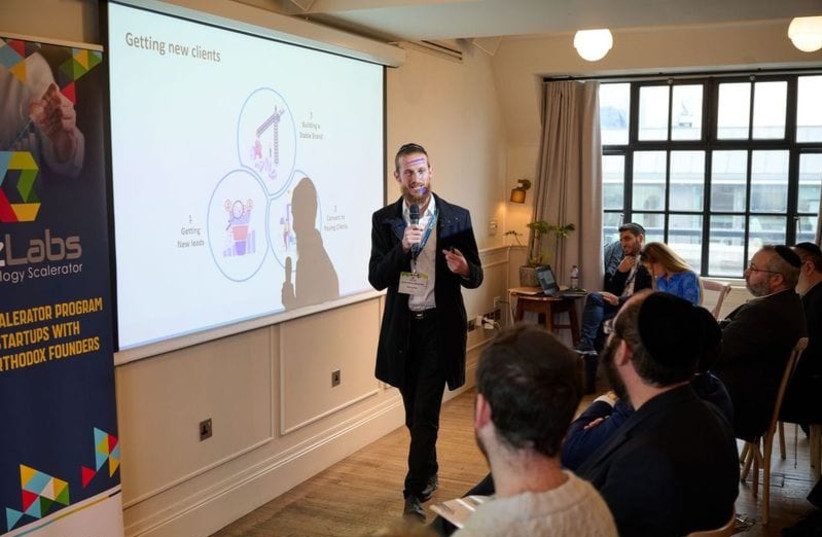Creators of a startup that uses AI to aid readers challenged with dyslexia and another that reuses baby bottles to help hospitalized premature newborns, were among those who presented their technology companies at a London showcase on Monday.
The exhibition was unique in that the founders all come from the Israeli Ultra-Orthodox (Haredi) community, a sector typically less engaged in technology.
Twenty one ultra-orthodox entrepreneurs pitched to investors as part of the BizLabs 'scalerator' program, designed to help Haredis in Israel scale their startups.

Meet the entrepreneurs
Avraham Sheinfeld, CEO of Novotalk, a 24/7 speech therapy service to help those with speech disorders, based on a real-life training platform that allows users to sign up and undergo therapy whenever they want, expressed excitement about presenting at the London event.
“There are many challenges facing Ultra-Orthodox entrepreneurs, such as understanding the required product, exposure to investors, language barriers, and much more," Sheinfeld said. "The BizLabs roadshow to provide us with help, network opportunities, training, and personal mentors, all the while catering for our religious needs. From this London event, we expect more exposure to quality audiences, and of course collaborations from the UK, which is certainly exciting.”
Other companies included CyWat, which has developed a platform for real-time water quality and safety monitoring and Shenanli, an ed-tech company that provides an interactive reader which allows books and articles, to be read aloud and presented to a listener, acting as a digital tutor.
Motti Eichler, who runs Achim Global, an entrepreneurship training initiative based in Bnei Brak and Jerusalem for Haredi entrepreneurs, echoed the anticipation.
“It is remarkable to be a part of this London roadshow, witnessing start-ups that we have supported connecting to UK VCs, potential investors, and businesses," he said. "Our goal with Bizlabs is to be the leading platform in Israel to advance and grow startups from within the Charedi community, and this event in London has certainly helped.”
